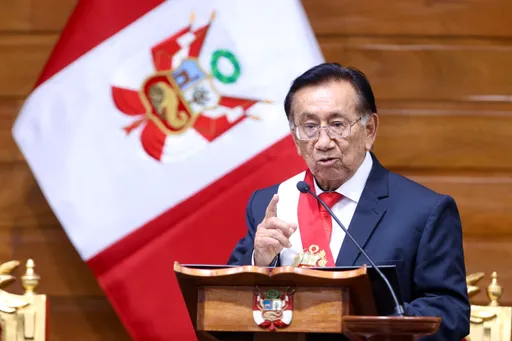Austrian President Alexander Van der Bellen has been re-elected, projections showed on Sunday, after campaigning on promises of stability as the Alpine country struggles with an energy crisis and inflation.
The projections showed the 78-year-old incumbent swept 54.6 percent of the votes with six other candidates lagging far behind.
The final official result is not expected until Monday.
Campaigning on a slogan of "clarity" and "stability", Van der Bellen had been widely tipped to clinch a second mandate.
"It would be nice if we had clarity today," the economics professor said after casting his ballot in central Vienna earlier on Sunday.
"Nice for Austria, nice for us — if we can then fully concentrate on the diverse tasks ahead, the multitude of crises ... that we in Austria, in Europe, are facing."
Polls ahead of the election had suggested the pro-European liberal would secure more than 50 percent of the vote, thus avoiding a run-off.
Some 6.4 million people were eligible to cast their ballots from the European Union country's total population of nine million.
The presidential post, which has a term of six years, is largely ceremonial.
READ MORE:Austrians vote in presidential election as pro-EU camp eyes victory
Life and career
Van der Bellen will be Austria's oldest head of state to be sworn in if he wins.
Van der Bellen was running again as an independent, but he has the explicit or implicit backing of Austria's major parties except for the far-right Freedom Party (FPOe).
"Van der Bellen stands for integrity and stability, which is very appreciated by voters given the multitude of crises that many European countries are currently facing," Julia Partheymueller, a political analyst at the University of Vienna, told AFP news agency.
Van der Bellen — also known as "Sasha", a nickname that nods to his Russian roots — was born in Vienna during World War II to an aristocratic Russian father and an Estonian mother who fled Stalinism.
The arrival of the Red Army a year later forced the family to escape to the southern state of Tyrol, where Van der Bellen spent an "idyllic childhood".
He studied economics at the University of Innsbruck and finished his PhD in 1970 before going on to become dean of economics at the University of Vienna.























